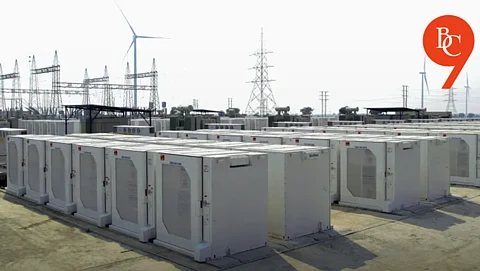

The Indian government has launched a ₹5,400 crore funding scheme to establish 30 gigawatt-hours (GWh) of battery energy storage systems (BESS) across the country by 2030. This bold initiative is set to play a pivotal role in integrating renewable energy into the national grid, enhancing energy security, and supporting India’s climate goals.
As India rapidly expands its solar and wind capacity, the need for reliable energy storage has become critical. Battery energy storage systems allow excess renewable power generated during peak periods to be stored and released when needed, ensuring a stable and resilient grid. This not only reduces reliance on fossil fuels but also helps manage fluctuations in supply and demand.
Total Outlay: ₹5,400 crore (approx. $650 million)
Target Capacity: 30 GWh of battery energy storage by 2030
Implementation Timeline: Phased rollout, with key milestones set for 2027 and 2030
Eligible Technologies: Advanced lithium-ion, flow batteries, and other next-gen storage solutions
The scheme will offer viability gap funding, capital subsidies, and incentives to attract private sector investment and spur innovation in battery manufacturing and deployment.
By enabling large-scale storage, India can absorb more solar and wind power, reducing curtailment and maximizing green energy use. Battery storage will provide critical balancing services, frequency regulation, and backup during peak demand or outages. Developing domestic storage capacity reduces dependence on imported fossil fuels and battery technologies. The scheme is expected to generate thousands of high-skilled jobs in manufacturing, engineering, and R&D, while fostering a vibrant ecosystem for energy tech startups.
Energy sector leaders have welcomed the announcement, calling it a “game-changer” for India’s renewable ambitions. Experts highlight that battery storage is the missing link in the clean energy puzzle, and this funding will help bridge the gap between intermittent renewables and 24/7 reliable power.
“India’s commitment to 30 GWh of storage is a strong signal to global investors and technology providers,” said a senior executive from a leading energy firm. “It will catalyze domestic manufacturing and position India as a key player in the global battery supply chain.”
With this ₹5,400 crore scheme, India is taking a decisive step toward a cleaner, more resilient, and future-ready energy system. As battery storage becomes the backbone of the grid, the country is poised to unlock the full potential of its vast renewable resources paving the way for sustainable growth and energy security.
